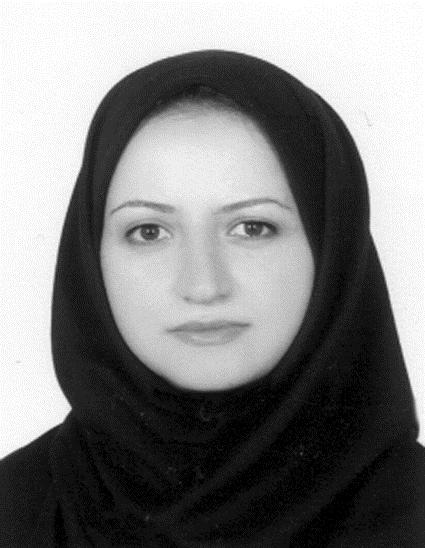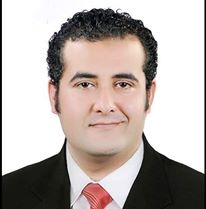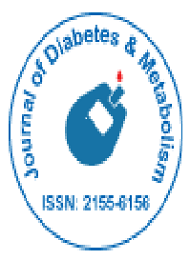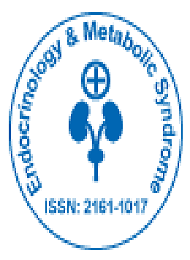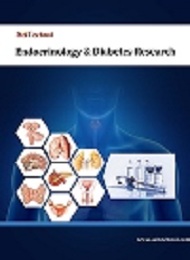Theme: “Endocrinology & Diabetes: Research, Evaluation & Developmental Changesâ€
Endocrinology Summit 2017
Endocrinology is the study of the endocrine system in the human body. It is also concerned with the integration of developmental events proliferation, growth, and differentiation, and the psychological or behavioural activities of metabolism, growth and development, tissue function, sleep, digestion, respiration, excretion, mood, stress, lactation, movement, reproduction, and sensory perception caused by hormones. Diabetes is a group of metabolic diseases in which there are high blood sugar levels over a prolonged period. Symptoms of high blood sugar include frequent urination, increased thirst, and increased hunger. If left untreated, diabetes can cause many complications acute complications include diabetic ketoacidosis and nonketotic hyperosmolar coma. Serious long-term complications include cardiovascular disease, stroke, chronic kidney failure, foot ulcers, and damage to the eyes.
It takes us immense pleasure to announce the next conference that is 9th International Conference on Endocrinology and Diabetes Summit which is going to be held from September 13-14, 2017 at Singapore.
ConferenceSeries Ltd invites Endocrinology & Diabetes expertise, researchers, professors, scientific communities, therapists, counsellors, delegates, students, business professionals and executives to attend 9th International Conference on Endocrinology and Diabetes Summit which is going to be held on September 13-14, 2017 at Singapore. ConferenceSeries Ltd organises 1000+ Global events inclusive of 300+ Conferences every Year across USA, Europe & Asia with support from 1000 more scientific societies and Publishes 500+ Open access journals which contains over 50000 eminent personalities, reputed scientists as editorial board members.
For more conferences, please visit ConferenceSeries Ltd
Prevalence of Endocrinology & Diabetes is increasing among all ages in Asia, mostly due to increases in overweight and obesity, unhealthy diet and physical inactivity. There are about 60 million people with diabetes in the Asian Region, or about 10.3% of men and 9.6% of women aged 25 years and over.
Worldwide, high blood glucose kills about 3.4 million people annually. Almost 80% of these deaths occur in low- and middle-income countries, and almost half are people aged less than 70 years. WHO projects diabetes deaths will double between 2005 and 2030.
Why to attend???
Medical doctors, patients and health care providers consider the prevention of Endocrinology as an essential tool to improve the general health status of the population. The proportions of people suffering from the Endocrinology are expected to increase in future according a recent statistical survey. Realizing this imperative, ConferenceSeries Ltd is set to organize International Conference on Endocrinology and Diabetes for the upcoming year with a view to enhance research and promote awareness aiming in developing solutions for the challenges encountered.
Target Audience:
- Endocrinology & Diabetes students, Scientists
- Endocrinology & Diabetes Researchers
- Endocrinology & Diabetes Faculty
- Medical Colleges
- Endocrinology & Diabetes Associations and Societies
- Business Entrepreneurs
- Training Institutes
- Manufacturing Medical Devices Companies
Scope and Importance of Endocrinology
Endocrinology Conference deals with the Endocrinology and Diabetes which is a branch of science dealing with the endocrine glands. Endocrinology includes the study of hormones, the endocrine system, and their role in the physiology of the body. Endocrinology is a specialty of medicine which deals with the diagnosis and treatment of diseases related to hormones. Endocrinology deals with the human functions as the coordination of metabolism, respiration, reproduction, sensory perception, and movement. The medical specialty of endocrinology involves the diagnostic evaluation of a wide variety of symptoms and variations and the long-term management of disorders of deficiency or excess of one or more hormones. The diagnosis and treatment of endocrine diseases are guided by laboratory tests to a greater extent than for most specialties. · Many diseases are investigated through ''excitation/stimulation'' or ''inhibition/suppression'' testing. This might involve injection with a stimulating agent to test the function of an endocrine organ. Blood is then sampled to assess the changes of the relevant hormones or metabolites. An endocrinologist needs extensive knowledge of clinical chemistry and biochemistry to understand the uses and limitations of the investigations. Diagnostic imaging of endocrine organs may reveal incidental findings called incidentalomas, which may or may not represent disease. Some of the most common endocrine diseases include diabetes mellitus, hypothyroidism and the metabolic syndrome. Care of diabetes, obesity and other chronic diseases necessitates understanding the patient at the personal and social level as well as the molecular, and the physician–patient relationship can be an important therapeutic process. Apart from treating patients, many endocrinologists are involved in clinical science and medical research, teaching, and hospital management.
Conference series puts together the entire eminent endocrinologist across the globe to share their knowledge and views on the respective conference theme.
Why Singapore? (Asia Pacific)
It is our great pleasure to welc ome you to “9th International Conference on Endocrinology and Diabetes Summit” to be held in Singapore. The Endocrinology Summit 2017 meeting offers a unique opportunity to gather and network with colleagues from around the world in an exciting educational and professional environment in the field of diabetes.
Endocrinology has increasingly become a lifestyle-related disease as it afflicts young and old. In 2013, the value of the Endocrinology and Diabetes market in Asia-Pacific countries was an estimated $8.5 billion, and it is forecast to grow at a Compound Annual Growth Rate (CAGR) of 9.1% between 2013 and 2020 to $10.5 billion. The latest report states that of the four major APAC countries (China, India, Japan and Australia), China will see the fastest expansion, with a CAGR of 16.5% over the forecast period. This will be driven by an increase in the prevalent population due to urbanization, advancement in the lifestyle of the people and by expected drug launches.
Societies associated with Endocrinology research
To encourage, educate, update and train registered medical practitioners, dieticians, qualified nurses and other appropriately qualified paramedical personnel in the field of Endocrinology and Diabetes various well-known societies/associations are working across the globe to efficiently prevent and combat the fatal disease.
- Endocrine Society
- American Association of Clinical Endocrinologists
- The American Association of Endocrine Surgeons
- Association of Program Directors in Endocrinology, Diabetes and Metabolism
- Society for Endocrinology
- Brazilian Society of Surgical Endocrinology
- British Society for Pediatric Endocrinology and Diabetes
- European Society of Endocrinology
- International Society of Endocrinology
- Pediatric Endocrine Society
Market Research on Endocrinology
Novartis AG’s Signifier won U.S. regulatory approval to treat the rare hormone condition known as Cushing’s disease IN 2012. About 2 or 3 people for every 1 million will develop non-medicine related Cushing’s each year in the U.S., according to the National Institutes of Health.
Based on diagnostic technologies, the tandem mass spectrometry diagnostic technique was the largest segment of the global endocrine testing market. The report also names immunoassays and sensor technologies as rapidly growing segments of the global endocrine testing market. The report also cites findings published by Elsevier, Inc., which examine the geriatric population above 65, of which 13.7%, have subclinical hypothyroidism and 1.7% have hypothyroidism. Owing to the increasing number of diabetics all over the world, the global endocrine testing market's fastest growing testing segment is set to be the insulin test. The ambulatory care centers segment is set to show the fastest growth rate within the report's forecast period. Top reasons for this segment's growth are a speedier response rate and lower costs than the ones a patient would otherwise incur. The home-based tests segment is also showing promising development opportunities and is predicted to gain a greater market share in the near future. On the other hand, commercial laboratories will continue to gain momentum in terms of revenue generation and consequently invest more in further research. The report also cites information released by the World Health Organization (WHO), in which the WHO states its prediction of diabetes becoming the seventh leading cause of death in the world by 2030. Nearly 80% deaths related to diabetes occur in middle-to-low-income homes, as the disease is exacerbated by poor management.
Track-1: Endocrinology & Diabetes: Physiology, Metabolism and Regulation
Endocrinology is a perplexing investigation of the different hormones and their activities and disarranges in the body. Endocrine Glands are organs that make hormones. These are substances that control exercises in the body and effectively affect the digestion system, multiplication, nourishment retention and use, development and improvement and so on. Hormones likewise control the way a living being reacts to their environment and help by giving sufficient vitality to different capacities. Diabetes is brought about by diminished creation of insulin or by diminished capacity to utilize insulin. Insulin, the hormone delivered by the beta cells in the pancreas, permits (glucose) cells to have the capacity to utilize glucose. The chemical reactions of metabolism are organized into metabolic pathways, in which one chemical is transformed through a series of steps into another chemical, by a sequence of enzymes. There are multiple levels of metabolic regulation. In intrinsic regulation, the metabolic pathway self-regulates to respond to changes in the levels of substrates or products a decrease in the amount of product can increase the flux through the pathway to compensate. This type of regulation often involves allosteric regulation of the activities of multiple enzymes in the pathway. Enzymes are crucial to metabolism because they allow organisms to drive desirable reactions that require energy that will not occur by them, by coupling them to spontaneous reactions that release energy. Hormonal pathways maintain homeostasis, and adjustments in secretion usually result in changes that will help maintain the status quo. In addition, secretion and activity of particular hormones may be adjusted upward or downward in response to challenges such as chronic stress, disease, or change in nutritional values.
Related Conferences: 20th World Summit on Diabetes, Nutrition, Metabolism & Medicare July 24-26,2017 Vancouver, Canada; 23rd International Conference on Herbal and Alternative Remedies for Diabetes and Endocrine Disorders November 2-4, 2017 Bangkok, Thailand; 18th European Diabetes Congress July 17-18, 2017 Lisbon, Portugal; 10th Diabetologists Conference July 24-26,2017 Vancouver, Canada; 19th Asia Pacific Diabetes Conference July 20-22, 2017 Melbourne, Australia;7th European Diabetes and Endocrinology Congress May 18-19,2017 Munich, Germany ; 16th Global Diabetes Conference & Medicare Expo March 22-23, 2017 Rome, Italy; 8th International Conference on Adrenal & Thyroid Disorders, Treatment June 12-13, 2017 Taiwan, Taipei; 13th World Congress on Diabetes October 05-06, 2017 London,UK; 9th International Conference on Endocrinology and Diabetes Summit September 13-14, 2017 Singapore.
Track-2: Diabetes and its Treatment
Diabetes, often referred to by doctors as diabetes mellitus, describes a group of metabolic diseases in which the person has high blood glucose (blood sugar), either because insulin production is inadequate, or because the body's cells do not respond properly to insulin, or both. Patients with high blood sugar will typically experience polyuria (frequent urination), they will become increasingly thirsty (polydipsia) and hungry (polyphagia). The early symptoms of untreated diabetes are related to elevated blood sugar levels, and loss of glucose in the urine. High amounts of glucose in the urine can cause increased urine output (frequent urination) and lead to dehydration .
Related Conferences: 7th European Diabetes and Endocrinology Congress May 18-19,2017 Munich, Germany ; 16th Global Diabetes Conference & Medicare Expo March 22-23, 2017 Rome, Italy; 8th International Conference on Adrenal & Thyroid Disorders, Treatment June 12-13, 2017 Taiwan, Taipei;20th World Summit on Diabetes, Nutrition, Metabolism & Medicare July 24-26,2017 Vancouver, Canada; 23rd International Conference on Herbal and Alternative Remedies for Diabetes and Endocrine Disorders November 2-4, 2017 Bangkok, Thailand; 18th European Diabetes Congress July 17-18, 2017 Lisbon, Portugal; 10th Diabetologists ConferenceJuly 24-26,2017 Vancouver, Canada; 19th Asia Pacific Diabetes Conference July 20-22, 2017 Melbourne, Australia; 13th World Congress on Diabetes October 05-06, 2017 London,UK; 9th International Conference on Endocrinology and Diabetes Summit September 13-14, 2017 Singapore.
Track-3: Endocrine Tumours
An endocrine tumor is a mass that affects the parts of the body that secrete hormones. Because an endocrine tumor starts in the cells that make hormones, the tumor itself can make hormones and cause serious illness. There are several types of endocrine tumors. For more specific information on each type such as Adrenal gland tumour and Carcinoid tumor. People with an endocrine tumor may experience the following symptoms or signs. Sometimes, people with an endocrine tumor do not have any of these changes. Or, the cause of a symptom may be another medical condition that is not a tumor. Thickening or lump in any part of the body, Persistent pain in a specific (localized) area, Anxiety, including panic attacks, Irritability, Depression, Confusion, Nervousness, Fatigue, Changes in bowel or bladder habits, Jaundice (yellowing of the skin and whites of the eyes), Facial flushing (redness and warm feeling over the face), Unexplained weight gain or loss, Intestinal bleeding .
Related Conferences: 7th European Diabetes and Endocrinology Congress May 18-19,2017 Munich, Germany ; 16th Global Diabetes Conference & Medicare Expo March 22-23, 2017 Rome, Italy; 8th International Conference on Adrenal & Thyroid Disorders, Treatment June 12-13, 2017 Taiwan, Taipei;20th World Summit on Diabetes, Nutrition, Metabolism & Medicare July 24-26,2017 Vancouver, Canada; 23rd International Conference on Herbal and Alternative Remedies for Diabetes and Endocrine Disorders November 2-4, 2017 Bangkok, Thailand; 18th European Diabetes Congress July 17-18, 2017 Lisbon, Portugal; Conference July 24-26,2017 Vancouver, Canada; 19th Asia Pacific Diabetes Conference July 20-22, 2017
Track-4: Endocrine Cancer
The endocrine system consists of cells that produce hormones. Hormones are chemical substances that are formed in the body and carried in the bloodstream to have a specific regulatory effect on the activity of other organs or cells in the body. For example, a component of the pancreas is made up of specialized cells clustered together in islands within the organ, called islets of Langerhans. These cells produce multiple hormones, the most critical one being insulin, which is a substance that helps control the amount of sugar in the blood. An endocrine cancer is a growth that affects the parts of the body that secrete hormones. Because an endocrine tumor arises from cells that produce hormones, the tumor itself can produce hormones and cause serious illness.
Related Conferences: 7th European Diabetes and Endocrinology Congress May 18-19,2017 Munich, Germany ; 16th Global Diabetes Conference & Medicare Expo March 22-23, 2017 Rome, Italy; 8th International Conference on Adrenal & Thyroid Disorders, Treatment June 12-13, 2017 Taiwan, Taipei;20th World Summit on Diabetes, Nutrition, Metabolism & Medicare July 24-26,2017 Vancouver, Canada; 23rd International Conference on Herbal and Alternative Remedies for Diabetes and Endocrine Disorders November 2-4, 2017 Bangkok, Thailand; 18th European Diabetes Congress July 17-18, 2017 Lisbon, Portugal; 10th Diabetologists ConferenceJuly 24-26,2017 Vancouver, Canada; 19th Asia Pacific Diabetes Conference July 20-22, 2017 Melbourne, Australia; 13th World Congress on Diabetes October 05-06, 2017 London,UK; 9th International Conference on Endocrinology and Diabetes Summit September 13-14, 2017 Singapore.
Track-5: Pregnancy, Reproduction and Infertility
Other symptoms such as behaviour changes, changes in school performance, and persistent belly pain may also be present. When the gland produces too much thyroid hormone (overactive), the condition is called hyperthyroidism. When the gland produces too little thyroid hormone (underactive), the condition is called hypothyroidism. Thyroid hormone can also lead to Hypothyroidism in new born. Women are more likely than men to have thyroid disease. One in eight women will develop thyroid problems during her lifetime. For example, women are at particularly high risk for developing thyroid disorders following Infertility, Miscarriage & Complications during pregnancy & childbirth. And more over Diabetes is the most common medical complication during pregnancy, representing 3.3% of all live births. No matter what type of Diabetes you have, there are many steps you and your health care team can take in order to have a safe and healthy pregnancy. In women, thyroid diseases can cause problems with your menstrual period, Problems getting pregnant, Problems during pregnancy.
Related Conferences: 7th European Diabetes and Endocrinology Congress May 18-19,2017 Munich, Germany ;16th Global Diabetes Conference & Medicare Expo March 22-23, 2017 Rome, Italy; 8th International Conference on Adrenal & Thyroid Disorders, Treatment June 12-13, 2017 Taiwan, Taipei;20th World Summit on Diabetes, Nutrition, Metabolism & Medicare July 24-26,2017 Vancouver, Canada; 23rd International Conference on Herbal and Alternative Remedies for Diabetes and Endocrine Disorders November 2-4, 2017 Bangkok, Thailand; 18th European Diabetes Congress July 17-18, 2017 Lisbon, Portugal; 10th Diabetologists ConferenceJuly 24-26,2017 Vancouver, Canada; 19th Asia Pacific Diabetes Conference July 20-22, 2017 Melbourne, Australia; 13th World Congress on Diabetes October 05-06, 2017 London,UK; 9th International Conference on Endocrinology and Diabetes Summit September 13-14, 2017 Singapore.
Track-6: Obesity & Metabolism:
The chemical reactions of metabolism are organized into metabolic pathways, in which one chemical is transformed through a series of steps into another chemical, by a sequence of enzymes. There are multiple levels of metabolic regulation. In intrinsic regulation, the metabolic pathway self-regulates to respond to changes in the levels of substrates or products a decrease in the amount of product can increase the flux through the pathway to compensate. This type of regulation often involves allosteric regulation of the activities of multiple enzymes in the pathway. Being overweight increases the chances of developing the common type of diabetes, type 2 diabetes. In this disease, the body makes enough insulin but the cells in the body have become resistant to the salutary action of insulin. Science proposes that being overweight stresses the insides of individual cells. Specifically, overeating stresses the membranous network inside of cells called endoplasmic reticulum (ER). Most patients with type 2 diabetes are obese, and the global epidemic of obesity largely explains the dramatic increase in the incidence and prevalence of type 2 diabetes over the past 20 years. Currently, over a third (34%) of U.S. adults are obese (defined as BMI >30 kg/m2), and over 11% of people aged ≥20 years have diabetes, a prevalence projected to increase to 21% by 2050. Reducing your body weight, by even a small amount, can help improve your body's insulin sensitivity and lower your risk of developing Cardiovascular Diseases and metabolic conditions such as type 2 diabetes, heart disease and types of cancer.
Related Conferences: 10th Diabetologists Conference July 24-26,2017 Vancouver, Canada; 19th Asia Pacific Diabetes Conference July 20-22, 2017 Melbourne, Australia;7th European Diabetes and Endocrinology Congress May 18-19,2017 Munich, Germany ; 16th Global Diabetes Conference & Medicare Expo March 22-23, 2017 Rome, Italy; 8th International Conference on Adrenal & Thyroid Disorders, Treatment June 12-13, 2017 Taiwan, Taipei;13th World Congress on Diabetes October 05-06, 2017 London,UK; 9th International Conference on Endocrinology and Diabetes Summit September 13-14, 2017 Singapore; 20th World Summit on Diabetes, Nutrition, Metabolism & Medicare July 24-26,2017 Vancouver, Canada; 23rd International Conference on Herbal and Alternative Remedies for Diabetes and Endocrine Disorders November 2-4, 2017 Bangkok, Thailand; 18th European Diabetes Congress July 17-18, 2017 Lisbon, Portugal.
Track-7: Molecular and Cellular endocrinology
Molecular and Cellular Endocrinology was established in 1974 to meet the demand for integrated publication on all aspects related to the genetic and biochemical effects, synthesis and secretions of extracellular signals (hormones, neurotransmitters, etc.) and to the understanding of cellular regulatory.
Related Conferences: 7th European Diabetes and Endocrinology Congress May 18-19,2017 Munich, Germany ; 16th Global Diabetes Conference & Medicare Expo March 22-23, 2017 Rome, Italy; 8th International Conference on Adrenal & Thyroid Disorders, Treatment June 12-13, 2017 Taiwan, Taipei;20th World Summit on Diabetes, Nutrition, Metabolism & Medicare July 24-26,2017 Vancouver, Canada; 23rd International Conference on Herbal and Alternative Remedies for Diabetes and Endocrine Disorders November 2-4, 2017 Bangkok, Thailand; 18th European Diabetes Congress July 17-18, 2017 Lisbon, Portugal; 10th Diabetologists ConferenceJuly 24-26,2017 Vancouver, Canada; 19th Asia Pacific Diabetes Conference July 20-22, 2017 Melbourne, Australia; 13th World Congress on Diabetes October 05-06, 2017 London,UK; 9th International Conference on Endocrinology and Diabetes Summit September 13-14, 2017 Singapore.
Track-8: Genomic endocrinology
Genomics in Endocrinology focuses on exciting new advances in endocrinology resulting from DNA microarray studies and includes a comprehensive introduction to the use of DNA microarrays in endocrinology. The volume provides the basis for further understanding of the usefulness of microarray analyses in endocrinology research. Topics discussed are the methodology of DNA microarrays and general methods for the analysis of microarray data, as well as studies of a wide variety of normal and abnormal endocrine cells.
Related Conferences: 13th World Congress on Diabetes October 05-06, 2017 London, UK; 9th International Conference on Endocrinology and Diabetes Summit September 13-14, 2017 Singapore.;20th World Summit on Diabetes, Nutrition, Metabolism & Medicare July 24-26,2017 Vancouver, Canada; 23rd International Conference on Herbal and Alternative Remedies for Diabetes and Endocrine Disorders November 2-4, 2017 Bangkok, Thailand; 18th European Diabetes Congress July 17-18, 2017 Lisbon, Portugal; 10th Diabetologists Conference July 24-26,2017 Vancouver, Canada; 19th Asia Pacific Diabetes Conference July 20-22, 2017 Melbourne, Australia;7th European Diabetes and Endocrinology Congress May 18-19,2017 Munich, Germany ; 16th Global Diabetes Conference & Medicare Expo March 22-23, 2017 Rome, Italy; 8th International Conference on Adrenal & Thyroid Disorders, Treatment June 12-13, 2017 Taiwan, Taipei;
Track-9: Cardiovascular Complications
The cardiovascular system responds to multiple endocrine signals, and there are strong parallels between the mechanisms of endocrine and other types of signals that influence the function of the cardiovascular system (nutritional signals, nerve inputs, etc.). Endocrine signals that influence the cardiovascular system can be divided largely into two types according to whether they are mediated by nuclear receptors (including cholesterol and fatty acid metabolites, steroids, and thyroid hormones) or cell surface receptors that work by initiating second messenger signalling cascades (including peptide hormones, cytokines, and neurotransmitters). We discuss below the roles of nuclear and cell surface receptors separately. However, in reality, the actions of both types of signal overlap extensively and are significantly integrated. Cardiovascular disease and diabetes have emerged as major public health problems, both as distinct clinical entities and as comorbid conditions. As a result, the fields of Cardiovascular biology and endocrinology are working more closely now than ever before.
Related Conferences: 13th World Congress on Diabetes October 05-06, 2017 London, UK; 9th International Conference on Endocrinology and Diabetes Summit September 13-14, 2017 Singapore.;20th World Summit on Diabetes, Nutrition, Metabolism & Medicare July 24-26,2017 Vancouver, Canada; 23rd International Conference on Herbal and Alternative Remedies for Diabetes and Endocrine Disorders November 2-4, 2017 Bangkok, Thailand; 18th European Diabetes Congress July 17-18, 2017 Lisbon, Portugal; 10th Diabetologists Conference July 24-26,2017 Vancouver, Canada; 19th Asia Pacific Diabetes Conference July 20-22, 2017 Melbourne, Australia;7th European Diabetes and Endocrinology Congress May 18-19,2017 Munich, Germany ; 16th Global Diabetes Conference & Medicare Expo March 22-23, 2017
Track-10: Diseases & Disorders:
In pancreatic islet transplantation, cells are taken from a donor pancreas and transferred into another person. Once implanted, the new islets begin to make and release insulin. Researchers hope that islet transplantation will help people with type 1 diabetes live without daily injections of insulin. Xenotransplantation is the transplantation of living cells, tissues or organs from one species to another. Such cells, tissues or organs are called xenografts or xenotransplants.
Related Conferences: 10th Diabetologists Conference July 24-26,2017 Vancouver, Canada; 7th European Diabetes and Endocrinology Congress May 18-19,2017 Munich, Germany ; 16th Global Diabetes Conference & Medicare Expo March 22-23, 2017 Rome, Italy; 18th European Diabetes Congress July 17-18, 2017 Lisbon, Portugal;8th International Conference on Adrenal & Thyroid Disorders, Treatment June 12-13, 2017 Taiwan, Taipei; 19th Asia Pacific Diabetes Conference July 20-22, 2017 Melbourne, Australia;23rd International Conference on Herbal and Alternative Remedies for Diabetes and Endocrine Disorders November 2-4, 2017 Bangkok, Thailand; 9th International Conference on Endocrinology and Diabetes Summit September 13-14, 2017 Singapore; 20th World Summit on Diabetes, Nutrition, Metabolism & Medicare July 24-26,2017 Vancouver, Canada;13th World Congress on Diabetes October 05-06, 2017 London,UK.
Track-11: Endocrine Glands and their Hormones
Endocrine glands are glands of the endocrine system that secrete their products, hormones, directly into the blood rather than through a duct. The major glands of the endocrine system include the pineal gland, pituitary gland, pancreas, ovaries, testes, thyroid gland, parathyroid gland, hypothalamus and adrenal glands. The hypothalamus and pituitary gland are neuroendocrine organs. Local chemical messengers, not generally considered part of the endocrine system, include autocrines, which act on the cells that secrete them, and paracrines, which act on a different cell type nearby. The ability of a target cell to respond to a hormone depends on the presence of receptors, within the cell or on its plasma membrane, to which the hormone can bind. Hormone receptors are dynamic structures. Changes in number and sensitivity of hormone receptors may occur in response to high or low levels of stimulating hormones. Blood levels of hormones reflect a balance between secretion and degradation/excretion. The liver and kidneys are the major organs that degrade hormones; breakdown products are excreted in urine and feces.
Related Conferences: 19th Asia Pacific Diabetes Conference July 20-22, 2017 Melbourne, Australia; 7th European Diabetes and Endocrinology Congress May 18-19,2017 Munich, Germany; 16th Global Diabetes Conference & Medicare Expo March 22-23, 2017 Rome, Italy; 23rd International Conference on Herbal and Alternative Remedies for Diabetes and Endocrine Disorders November 2-4, 2017 Bangkok, Thailand; 9th International Conference on Endocrinology and Diabetes Summit September 13-14, 2017 Singapore; 20th World Summit on Diabetes, Nutrition, Metabolism & Medicare July 24-26,2017 Vancouver, Canada; 10th Diabetologists Conference July 24-26,2017 Vancouver, Canada; 18th European Diabetes Congress July 17-18, 2017 Lisbon, Portugal;8th International Conference on Adrenal & Thyroid Disorders, Treatment June 12-13, 2017 Taiwan, Taipei; 13th World Congress on Diabetes October 05-06, 2017 London,UK.
Track-12: Nutrition Research
Lipid disorders are a group of medical conditions which refer to excessive levels of fatty substances in the bloodstream. These fatty substances include cholesterol and triglycerides. An excess of bad cholesterol increases your risk of heart disease and stroke. A paraganglioma is rare neuroendocrine neoplasm that may develop at various body sites (including the head, neck, thorax and abdomen). "Paraganglioma" is now the most-widely accepted term for these lesions that have been also described as: glomus tumor chemodectoma, perithelioma, fibroangioma, and congenital nevi.Metabolic disorders of bone strength, usually caused by abnormalities of minerals (such as calcium or phosphorus), vitamin D, bone mass or bone structure. The most common metabolic bone disorder is osteoporosis. Embryonic undeveloped cell and fetal antecedent cell transplantation treatments are the significant undifferentiated cell treatments accessible for Diabetes. Aside from the above, different computational methodologies in Diabetes administration control have been presented as of late which are assuming an imperative part in recognizable proof of qualities bringing about diabetes helping in Early Detection of Diabetes. These procedures are likewise valuable in concentrating on the compound etiologist of Diabetes revealing different treatment prospects and model development forms for survival expectation. The Medical case reports have role diseases. They can also help understand the clinical spectrum of rare diseases, as well as unusual presentations of common diseases. They can help generate study hypotheses, including plausible mechanisms. Case reports may also have a role to play in guiding the personalization of disorders and treatments in clinical practice.
Related Conferences: 19th Asia Pacific Diabetes Conference July 20-22, 2017 Melbourne, Australia; 7th European Diabetes and Endocrinology Congress May 18-19,2017 Munich, Germany; 16th Global Diabetes Conference & Medicare Expo March 22-23, 2017 Rome, Italy; 23rd International Conference on Herbal and Alternative Remedies for Diabetes and Endocrine Disorders November 2-4, 2017 Bangkok, Thailand; 9th International Conference on Endocrinology and Diabetes Summit September 13-14, 2017 Singapore; 20th World Summit on Diabetes, Nutrition, Metabolism & Medicare July 24-26,2017 Vancouver, Canada; 10th Diabetologists Conference July 24-26,2017 Vancouver, Canada; 18th European Diabetes Congress July 17-18, 2017 Lisbon, Portugal;8th International Conference on Adrenal & Thyroid Disorders, Treatment June 12-13, 2017 Taiwan, Taipei; 13th World Congress on Diabetes October 05-06, 2017 London,UK.
Track-13: Clinical Studies & Case Reports
More recent research has led to increased understanding of the mechanisms underlying the body’s loss of sensitivity to insulin (commonly called insulin resistance) in type 2 diabetes and the development of new treatments for these individuals. For example, there is evidence to suggest that exercise and weight reduction both decrease insulin resistance. In fact, numerous studies including a landmark study funded by the NIH (the Diabetes Prevention Program), have shown that these two interventions increase sensitivity to insulin and reduce the development of diabetes in people with pre-diabetes. The prevention of diabetes improves the quality and length of life, but while reducing healthcare costs substantially. In addition, researchers have discovered new medications that improve blood sugar control and reduce the incidence of diabetes and its complications.
Related Conferences: 10th Diabetologists Conference July 24-26,2017 Vancouver, Canada; 19th Asia Pacific Diabetes Conference July 20-22, 2017 Melbourne, Australia;7th European Diabetes and Endocrinology Congress May 18-19,2017 Munich, Germany ; 16th Global Diabetes Conference & Medicare Expo March 22-23, 2017 Rome, Italy; 8th International Conference on Adrenal & Thyroid Disorders, Treatment June 12-13, 2017 Taiwan, Taipei;13th World Congress on Diabetes October 05-06, 2017 London,UK; 9th International Conference on Endocrinology and Diabetes Summit September 13-14, 2017 Singapore; 20th World Summit on Diabetes, Nutrition, Metabolism & Medicare July 24-26,2017 Vancouver, Canada; 23rd International Conference on Herbal and Alternative Remedies for Diabetes and Endocrine Disorders November 2-4, 2017 Bangkok, Thailand; 18th European Diabetes Congress July 17-18, 2017 Lisbon, Portugal.
Track-14: Neuropathy
The chemical reactions of metabolism are organized into metabolic pathways, in which one chemical is transformed through a series of steps into another chemical, by a sequence of enzymes. There are multiple levels of metabolic regulation. In intrinsic regulation, the metabolic pathway self-regulates to respond to changes in the levels of substrates or products a decrease in the amount of product can increase the flux through the pathway to compensate. This type of regulation often involves allosteric regulation of the activities of multiple enzymes in the pathway. Being overweight increases the chances of developing the common type of diabetes, type 2 diabetes. In this disease, the body makes enough insulin but the cells in the body have become resistant to the salutary action of insulin. Science proposes that being overweight stresses the insides of individual cells. Specifically, overeating stresses the membranous network inside of cells called endoplasmic reticulum (ER). Most patients with type 2 diabetes are obese, and the global epidemic of obesity largely explains the dramatic increase in the incidence and prevalence of type 2 diabetes over the past 20 years. Currently, over a third (34%) of U.S. adults are obese (defined as BMI >30 kg/m2), and over 11% of people aged ≥20 years have diabetes, a prevalence projected to increase to 21% by 2050. Reducing your body weight, by even a small amount, can help improve your body's insulin sensitivity and lower your risk of developing Cardiovascular Diseases and metabolic conditions such as type 2 diabetes, heart disease and types of cancer.
Related Conferences: 10th Diabetologists Conference July 24-26,2017 Vancouver, Canada; 19th Asia Pacific Diabetes Conference July 20-22, 2017 Melbourne, Australia;7th European Diabetes and Endocrinology Congress May 18-19,2017 Munich, Germany ; 16th Global Diabetes Conference & Medicare Expo March 22-23, 2017 Rome, Italy; 8th International Conference on Adrenal & Thyroid Disorders, Treatment June 12-13, 2017 Taiwan, Taipei;13th World Congress on Diabetes October 05-06, 2017 London,UK; 9th International Conference on Endocrinology and Diabetes Summit September 13-14, 2017 Singapore; 20th World Summit on Diabetes, Nutrition, Metabolism & Medicare July 24-26,2017 Vancouver, Canada; 23rd International Conference on Herbal and Alternative Remedies for Diabetes and Endocrine Disorders November 2-4, 2017 Bangkok, Thailand; 18th European Diabetes Congress July 17-18, 2017 Lisbon, Portugal.
Track-15: Surgery and Care
In pancreatic islet transplantation, cells are taken from a donor pancreas and transferred into another person. Once implanted, the new islets begin to make and release insulin. Researchers hope that islet transplantation will help people with type 1 diabetes live without daily injections of insulin. Xenotransplantation is the transplantation of living cells, tissues or organs from one species to another. Such cells, tissues or organs are called xenografts or xenotransplants.
Related Conferences: 10th Diabetologists Conference July 24-26,2017 Vancouver, Canada; 7th European Diabetes and Endocrinology Congress May 18-19,2017 Munich, Germany ; 16th Global Diabetes Conference & Medicare Expo March 22-23, 2017 Rome, Italy; 18th European Diabetes Congress July 17-18, 2017 Lisbon, Portugal;8th International Conference on Adrenal & Thyroid Disorders, Treatment June 12-13, 2017 Taiwan, Taipei; 19th Asia Pacific Diabetes Conference July 20-22, 2017 Melbourne, Australia;23rd International Conference on Herbal and Alternative Remedies for Diabetes and Endocrine Disorders November 2-4, 2017 Bangkok, Thailand; 9th International Conference on Endocrinology and Diabetes Summit September 13-14, 2017 Singapore; 20th World Summit on Diabetes, Nutrition, Metabolism & Medicare July 24-26,2017 Vancouver, Canada;13th World Congress on Diabetes October 05-06, 2017 London,UK.Track-15:
Track-16: Transplantation
The gland needs specific vitamins and minerals to properly do its job. Since we are all unique in how our hormones are functioning where individual levels may be off balance. Research shows us that there are a few key nutrients that are highly valuable for everyone. Some nutrients heavily influence the function of the thyroid gland, and certain foods can inhibit your body's ability to absorb the replacement hormones. There's no such thing as a hypothyroidism diet that will make you well, but eating smart can help you feel better despite the condition. There are many ways to support health easily and naturally, utilizing food and nutrients to encourage proper functioning. The way we eat can actually help, or hurt, our Endocrine System. The nutrients our endocrine system needs are easily accessible in many foods and dietary supplements. With the right information, we can make simple choices to improve health.
Related Conferences: 23rd International Conference on Herbal and Alternative Remedies for Diabetes and Endocrine Disorders November 2-4, 2017 Bangkok, Thailand;13th World Congress on Diabetes October 05-06, 2017 London,UK; 9th International Conference on Endocrinology and Diabetes Summit September 13-14, 2017 Singapore; 20th World Summit on Diabetes, Nutrition, Metabolism & Medicare July 24-26,2017 Vancouver, Canada; 18th European Diabetes Congress July 17-18, 2017 Lisbon, Portugal; 10th Diabetologists ConferenceJuly 24-26,2017 Vancouver, Canada; 19th Asia Pacific Diabetes Conference July 20-22, 2017 Melbourne, Australia;7th European Diabetes and Endocrinology Congress May 18-19,2017 Munich, Germany ; 16th Global Diabetes Conference & Medicare Expo March 22-23, 2017 Rome, Italy; 8th International Conference on Adrenal & Thyroid Disorders, Treatment June 12-13, 2017 Taiwan, Taipei.
Track-17:Management & Prevention
Endocrinology increases the risk of long-term complications. Endocrinology doubles the risk of cardiovascular disease and about 75% of deaths in diabetics are due to coronary artery disease. The primary complications of diabetes due to damage in small blood vessels include damage to the eyes, kidneys, and nerves. Damage to the eyes, known as diabetic retinopathy, is caused by damage to the blood vessels in the retina of the eye. Damage to the kidneys, known as diabetic nephropathy, can lead to tissue scarring, urine protein loss, and eventually chronic kidney disease. Diabetes is a leading cause of kidney failure. At least half of all people with diabetes may have signs of early kidney problems. Damage to the nerves of the body, known as diabetic neuropathy, is the most common complication of diabetes. Diabetes related foot problems may occur, and can be difficult to treat, occasionally requiring amputation.
Related Conferences: 20th World Summit on Diabetes, Nutrition, Metabolism & Medicare July 24-26,2017 Vancouver, Canada; 23rd International Conference on Herbal and Alternative Remedies for Diabetes and Endocrine Disorders November 2-4, 2017 Bangkok, Thailand; 18th European Diabetes Congress July 17-18, 2017 Lisbon, Portugal; 10th Diabetologists Conference July 24-26,2017 Vancouver, Canada; 19th Asia Pacific Diabetes Conference July 20-22, 2017 Melbourne, Australia;7th European Diabetes and Endocrinology Congress May 18-19,2017 Munich, Germany ; 16th Global Diabetes Conference & Medicare Expo March 22-23, 2017 Rome, Italy; 8th International Conference on Adrenal & Thyroid Disorders, Treatment June 12-13, 2017 Taiwan, Taipei; 13th World Congress on Diabetes October 05-06, 2017 London, UK; 9th International Conference on Endocrinology and Diabetes Summit September 13-14, 2017 Singapore.
Track-18:In Children’s, Teens & Adolescents
Thyroid problems are not rare in children, but they are not as common as parents. Hyperthyroidism an overactive thyroid gland, is seen only occasionally in new-borns. This condition is referred to as neonatal hyperthyroidism. Although thyroid disease occurs less frequently in children than in adults, the signs and symptoms can be similar. However, there are a few important differences that need to be brought to light. Congenital hypothyroidism is a disorder that affects infants at birth, and occurs in about 1 in 4000 live-born babies. It is characterised by the loss of thyroid function, due to the thyroid gland failing to develop normally. In some cases, the gland is totally absent. About 10 per cent of cases are caused by an enzyme defect leading to deficient hormones production, iodine deficiency and a brain pituitary gland abnormality. If the diagnosis is delayed, and immediate treatment is not given, congenital hypothyroidism can lead to growth and developmental defects, and severe mental retardation (cretinism).
Related Conferences: 20th World Summit on Diabetes, Nutrition, Metabolism & Medicare July 24-26,2017 Vancouver, Canada; 23rd International Conference on Herbal and Alternative Remedies for Diabetes and Endocrine Disorders November 2-4, 2017 Bangkok, Thailand; 18th European Diabetes Congress July 17-18, 2017 Lisbon, Portugal; 10th Diabetologists Conference July 24-26,2017 Vancouver, Canada; 19th Asia Pacific Diabetes Conference July 20-22, 2017 Melbourne, Australia;7th European Diabetes and Endocrinology Congress May 18-19,2017 Munich, Germany ; 16th Global Diabetes Conference & Medicare Expo March 22-23, 2017 Rome, Italy; 8th International Conference on Adrenal & Thyroid Disorders, Treatment June 12-13, 2017 Taiwan, Taipei; 13th World Congress on Diabetes October 05-06, 2017 London, UK; 9th International Conference on Endocrinology and Diabetes Summit September 13-14, 2017 Singapore.
Track-19: Research & Advanced Technologies
The metabolism of T3 and T4 combination therapy into active and inactive intermediates involves the action of 3 types of deiodinases. Recent studies of common genetic variations in deiodinase and thyroid hormone transport proteins offer fresh insights in understanding the variable response to thyroid hormone therapy and future research may clarify whether subsets of patients will benefit from challenges and improvements to combination therapy. Despite significant challenges, opportunities abound for improving the Thyroid Treatment Augments Psychiatric Therapy and also Improvements of Reproductive, Neuro-endocrinology or Neuroendocrine Function in Hypothalamic
Related Conferences: 20th World Summit on Diabetes, Nutrition, Metabolism & Medicare July 24-26,2017 Vancouver, Canada; 23rd International Conference on Herbal and Alternative Remedies for Diabetes and Endocrine Disorders November 2-4, 2017 Bangkok, Thailand; 18th European Diabetes Congress July 17-18, 2017 Lisbon, Portugal; 10th Diabetologists Conference July 24-26,2017 Vancouver, Canada; 19th Asia Pacific Diabetes Conference July 20-22, 2017 Melbourne, Australia;7th European Diabetes and Endocrinology Congress May 18-19,2017 Munich, Germany ; 16th Global Diabetes Conference & Medicare Expo March 22-23, 2017 Rome, Italy; 8th International Conference on Adrenal & Thyroid Disorders, Treatment June 12-13, 2017 Taiwan, Taipei; 13th World Congress on Diabetes October 05-06, 2017 London, UK; 9th International Conference on Endocrinology and Diabetes Summit September 13-14, 2017 Singapore.
Track-20: Challenges and Improvements
Endocrinology increases the risk of long-term complications. Endocrinology doubles the risk of cardiovascular disease and about 75% of deaths in diabetics are due to coronary artery disease. The primary complications of diabetes due to damage in small blood vessels include damage to the eyes, kidneys, and nerves. Damage to the eyes, known as diabetic retinopathy, is caused by damage to the blood vessels in the retina of the eye. Damage to the kidneys, known as diabetic nephropathy, can lead to tissue scarring, urine protein loss, and eventually chronic kidney disease. Diabetes is a leading cause of kidney failure. At least half of all people with diabetes may have signs of early kidney problems. Damage to the nerves of the body, known as diabetic neuropathy, is the most common complication of diabetes. Diabetes related foot problems may occur, and can be difficult to treat, occasionally requiring amputation.
Related Conferences: 7th European Diabetes and Endocrinology Congress May 18-19,2017 Munich, Germany ; 16th Global Diabetes Conference & Medicare Expo March 22-23, 2017 Rome, Italy; 8th International Conference on Adrenal & Thyroid Disorders, Treatment June 12-13, 2017 Taiwan, Taipei;20th World Summit on Diabetes, Nutrition, Metabolism & Medicare July 24-26,2017 Vancouver, Canada; 23rd International Conference on Herbal and Alternative Remedies for Diabetes and Endocrine Disorders November 2-4, 2017 Bangkok, Thailand; 18th European Diabetes Congress July 17-18, 2017 Lisbon, Portugal; 10th Diabetologists ConferenceJuly 24-26,2017 Vancouver, Canada; 19th Asia Pacific Diabetes Conference July 20-22, 2017 Melbourne, Australia; 13th World Congress on Diabetes October 05-06, 2017 London,UK; 9th International Conference on Endocrinology and Diabetes Summit September 13-14, 2017 Singapore.
Track-21:Alternative therapies & Complications
Endocrine surgery is a specialized surgical field where procedures are performed on Endocrine glands to achieve a hormonal or anti-hormonal effect in the body. Almost always, this entails operating to remove a tumor which has grown on or within an endocrine gland. A common approach is endoscopic endonasal surgery. The field of Endocrine surgery typically comprises surgery for the thyroid gland, parathyroid glands, and adrenal glands. The most common Endocrine surgery operation is removal of the thyroid (thyroidectomy), followed by parathyroid surgery (parathyroidectomy), and followed by the rare operation on the adrenal gland (adrenalectomy). Although not typically referred to as Endocrine surgery, it could be argured that surgery of the pituitary gland, testicles, ovaries, and pancreas are also forms of endocrine surgery since these glands are hormone producing glands as well. More classically, however, only thyroid, parathyroid and adrenal surgery are thought of as "endocrine surgery" with pituitary surgery typically thought of as a form of neurosurgery; testicle surgery typically thought of as urologic surgery; ovary surgery typically thought of as a form of gynecologic surgery; and pancreatic surgery typically thought of as oncology surgery.
Related Conferences: 7th European Diabetes and Endocrinology Congress May 18-19,2017 Munich, Germany ; 16th Global Diabetes Conference & Medicare Expo March 22-23, 2017 Rome, Italy;18th European Diabetes Congress July 17-18, 2017 Lisbon, Portugal; 8th International Conference on Adrenal & Thyroid Disorders, Treatment June 12-13, 2017 Taiwan, Taipei; 19th Asia Pacific Diabetes Conference July 20-22, 2017 Melbourne, Australia;23rd International Conference on Herbal and Alternative Remedies for Diabetes and Endocrine Disorders November 2-4, 2017 Bangkok, Thailand; 9th International Conference on Endocrinology and Diabetes Summit September 13-14, 2017 Singapore; 20th World Summit on Diabetes, Nutrition, Metabolism & Medicare July 24-26,2017 Vancouver, Canada; 10th Diabetologists Conference July 24-26,2017 Vancouver, Canada; 13th World Congress on Diabetes October 05-06, 2017 London,UK.
Conference Highlights
- Endocrinology Research and Development
- Diseases & Disorders
- Cardiovascular Complications
- Pregnancy, Reproduction and Infertility
- In Children’s, Teens & Adolescents
- Neuropathy
- Obesity & Metabolism
- Alternative therapies & Complications
- Surgery and Care
- Transplantation
- Nutrition Research
- Clinical Studies & Case Reports
- Research & Advanced Technologies
- Challenges and Improvements
- Management & Prevention
- Endocrine Cancer
- Endocrine Tumours
- Endocrine Glands and their Hormones
- Diabetes and its Treatment
- Genomic endocrinology
- Molecular and Cellular endocrinology
To share your views and research, please click here to register for the Conference.
To Collaborate Scientific Professionals around the World
| Conference Date | September 13-14, 2017 | ||
| Sponsors & Exhibitors |
|
||
| Speaker Opportunity Closed | Day 1 | Day 2 | |
| Poster Opportunity Closed | Click Here to View | ||
Useful Links
Special Issues
All accepted abstracts will be published in respective Our International Journals.
- Endocrinology & Diabetes Research
- Endocrinology & Metabolic Syndrome
- Journal of Diabetic Complications & Medicine
Abstracts will be provided with Digital Object Identifier by















